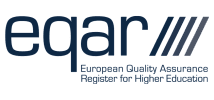
Corporate Governance
This short course on Corporate Governance offers a foundational understanding of the systems, principles, and processes by which organizations are directed and controlled. It explores the roles and responsibilities of key stakeholders, including boards of directors, executives, shareholders, and regulators. Participants will examine corporate governance frameworks, ethical decision-making, and best practices to enhance transparency, accountability, and sustainability within organizations. The course aims to equip participants with the knowledge to promote sound governance structures, enabling long-term corporate success and compliance with legal and ethical standards.
Overview

Overview
Course Learning Outcomes (CLOs):
By the end of the course, participants will be able to:
- Understand the core principles of corporate governance and its significance for organizations.
- Identify the roles and responsibilities of boards, executives, and shareholders in governance structures.
- Analyze governance frameworks and apply best practices to ensure transparency and accountability.
- Develop strategies for managing risks and ensuring compliance with governance laws and regulations.
- Evaluate the role of ethics and corporate social responsibility (CSR) in good governance.
Student Learning Objectives (SLOs):
Upon completing the course, participants will be able to:
- Describe the key elements of corporate governance and the functions of various stakeholders.
- Identify the importance of board composition, executive leadership, and shareholder engagement in governance.
- Analyze governance challenges and apply effective solutions for improving board performance.
- Implement governance policies that foster accountability, transparency, and integrity within organizations.
- Develop strategies for managing governance risks and ensuring compliance with regulations.
- Understand how ethical decision-making and CSR contribute to sustainable governance practices.

Benefits
With AI, the world is your oyster! It is an emerging field, rapidly growing, ever evolving and watched with a keen eye by industries and markets globally. There are many benefits to an education in AI:
In demand Career
With a Bachelor in artificial intelligence you are equipped with in-demand skills in the rapidly growing field of AI. Knowledge of developing AI systems, data analysis and AI techniques makes you valuable across industries, right from healthcare, finance, tech and more. This degree prepares you for career that has multiple options for diversification. AI professionals include AI engineers, data scientists, machine learning specialists, AI consultants, researchers and more. AI is transformative technology that is revolutionising the world. With an education background in AI, you are set up in an in-demand career field with an exciting future ahead!
Innovation and advancement
Applied AI is all about finding solutions and using AI systems to make life simpler. Applied AI draws on its solid foundation in Computer Science to analyse and provide solutions for real world challenges. You are prepared to address complex problems and contribute meaningfully in domains like healthcare diagnostics, fraud detection, autonomous vehicles, personalised recommendations and more. Being able to apply AI techniques for solving tasks makes for an extremely rewarding and impactful job role!
Solving real world problems
AI aims to constantly bridge the gap between natural intelligence and machine learning - it is a field of cutting edge research, innovation and advancing technology. This makes it ever evolving, with new algorithms, models and techniques being developed. By studying AI at an undergraduate level, you gain a strong foundation in AI fundamentals that help you better understand the latest advancements. You step into a career that empowers you to push the boundaries of AI, contribute to research and development and drive innovation in the field.
100% International
Study at your own pace from anywhere in the world
Recommended by 96% of our graduates
According to our latest alumni survey
50,000+ students
enrolled in Germany’s largest university
Study contents
Course Contents
Introduction to Corporate Governance
- Definition and importance of corporate governance
- Key elements of good governance
Corporate Governance Frameworks
- Different governance models and their applications (e.g., Anglo-American, European, Asian models)
- The role of regulators and government oversight
Roles and Responsibilities of Key Stakeholders
- Board of directors: structure, composition, and functions
- Executive leadership and their accountability
- Shareholders: rights, engagement, and activism
Board Governance and Performance
- Best practices for effective board governance
- Board committees and their roles (e.g., audit, risk, and remuneration committees)
- Board evaluations and performance reviews
Risk Management and Compliance
- Corporate governance and risk management
- Legal and regulatory compliance (Sarbanes-Oxley Act, corporate governance codes, etc.)
- The role of internal controls and audits
Ethics and Corporate Social Responsibility (CSR)
- The role of ethics in governance and decision-making
- CSR as part of corporate governance strategy
- Sustainable governance practices
Corporate Governance Failures and Case Studies
- High-profile corporate governance failures (e.g., Enron, Lehman Brothers)
- Lessons learned and strategies for preventing governance breakdowns
Developing and Implementing Governance Policies
- Creating a corporate governance framework for an organization
- Best practices for governance reporting and disclosure
- Governance audits and performance metrics for continuous improvement
Admission
Admission
Admission Criteria:
To register for the Corporate Governance Principles and Practices short course, participants should meet the following criteria:
- Education: A high school diploma or equivalent is recommended; some background in business, finance, or management is advantageous but not mandatory.
- Professional/Personal Interest: Ideal for professionals in management, legal, finance, or leadership roles, or those aspiring to work in corporate governance, compliance, or related fields.
- Basic Communication Skills: Proficiency in English for understanding course materials and engaging in discussions.
Who Would Benefit from This Course?
- Board members and executives responsible for corporate governance and decision-making within organizations.
- Aspiring leaders or managers, who wish to understand governance structures and improve their leadership capabilities.
- Compliance officers and risk managers, tasked with ensuring that organizations adhere to legal and regulatory frameworks.
- Human Resources (HR) and corporate secretaries, involved in governance processes and board communications.
- Investors, shareholders, and financial analysts, interested in understanding governance risks and performance.
- Business owners and entrepreneurs, aiming to implement sound governance practices in their own companies.
Careers
Career and Job Opportunities After Completing the Course:
This course enhances participants' understanding of corporate governance, making them well-suited for various roles that involve leadership, compliance, and governance. Potential career opportunities include:
Corporate Governance Officer
- Ensuring that the organization follows governance policies and practices in line with legal and ethical standards.
Board Member or Director
- Serving on a board of directors and contributing to strategic decision-making and governance oversight.
Compliance Officer
- Ensuring that the company complies with governance laws, regulations, and ethical standards.
Risk Manager
- Assessing and mitigating governance risks, including financial, legal, and operational risks.
Company Secretary or Corporate Secretary
- Supporting the board and ensuring that corporate governance policies are maintained and updated.
Internal Auditor or Audit Committee Member
- Reviewing governance practices and ensuring transparency and accountability within the organization.
Corporate Social Responsibility (CSR) Manager
- Overseeing the organization’s CSR initiatives and ensuring that they align with governance principles.
Investor Relations Manager
- Managing relationships between the company and shareholders, ensuring transparency and communication regarding governance issues.
Student reviews
Coming Soon.
Tuition fees
All our study programmes include the following benefits
- Teaching and study material
- Marking of your end-of-module exams
- Monthly live and recorded tutorials
- Use of the online campus
- Individual study coaching
- Online exams
- Career coaching
- Learn English for free
Our global recognition

IU is recognised by WES Canada and U.S., which means your degree can be converted to points in the local system for purposes of immigration, work, or studies.

As the first EU institution in UNESCO's Global Education Coalition, IU is committed to ensuring accessible quality education to students in crisis worldwide through free online micro-credentials.
Our company partners

For over 20 years, IU has established partnerships with leading global companies. This offers you the chance to gain firsthand experience through internships and projects and allow us to adapt our learning content to the ever-evolving needs of the labour market. You'll benefit from an education designed to bridge the gap between theory and real-world practice, ensuring your readiness for your future career.
Recognition
Recognition of previous achievements
Have you already completed a training course, studied at a university or gained work experience? Have you completed a course or a learning path through EPIBM LinkedIn Learning, and earned a certificate? Then you have the opportunity to get your previous achievements recognised, and complete your studies at EPIBM sooner.

Save time:
Skip individual modules or whole semesters!
Even before you apply for a study programme, we’ll gladly check whether we can take your previous achievements into account: 100% online, no strings attached. Simply fill in our recognition application form, which you can find under the content section of each study programme's webpage, and upload it via our upload section. You can also e-mail it to us, or send it via post.
Send an email to [email protected] to find out which previous achievements you can get recognised. You can get your previous achievements recognised during your studies.
Recognition files
Autonomous vehicles developer
With AI, the world is your oyster! It is an emerging field, rapidly growing, ever evolving and watched with a keen eye by industries and markets globally. There are many benefits to an education in AI:
That’s why after graduating, you’ll be able to apply your professional skills and knowledge, and work for development teams at any sector you find appealing.


Augmented reality (AR/VR) developer
Virtual (or augmented) reality isn’t all just fun and games, as great and enjoyable as that aspect is. It can also be used for groundbreaking social and psychological research, defensive purposes and therapy.
With an Applied Artificial Intelligence degree from IU University of Applied Sciences, you can take part in this vital field of technological development, and work on a wide variety of interesting projects.
Change what the world thinks about the possibilities that AI offers, and make a real difference in people’s lives, while enjoying every step of the process.
F.A.Q
Frequently Asked Questions
You might also be interested in these study programmes
Accredited and certified













